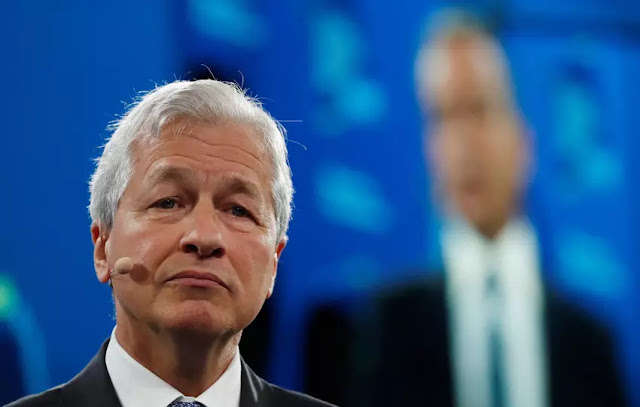The bosses of 27 US banking, tech, media, health and consulting firms have announced a collective goal to hire 100,000 New Yorkers from low-income and diverse communities by 2030.....
The corporate leaders are working together on an initiative called the New York Jobs CEO Council. The aim is to equip young people from the city’s low-income and minority communities with the skills and resources they need for the jobs of the future.
The COVID-19 crisis has widened systemic racial and economic divides. New York City’s poorer neighborhoods have been hardest hit, with Black and Latino residents suffering the highest death rates.
At the same time, the pandemic has pushed the world towards the deepest recession since the 1930s Great Depression. In June, the unemployment rate in New York City passed 20%.
Many young adults are facing bleak job and wage prospects. But even before the COVID-19 crisis, unemployment in the Bronx was 85% higher than in Manhattan. Meanwhile, jobs in high-demand fields were going unfilled.
Creating a talent pipeline
Working with education leaders, the city’s government, community organizations and non-profits, the Jobs CEO Council wants to address these inequities with programmes that will help put the next generation of New Yorkers on “pathways to stable careers”. It will also create a pipeline of talent to fill in-demand jobs.
The pledge to hire 100,000 people from low-income and minority communities in the next decade includes helping 25,000 students from City University of New York (CUNY) secure entry-level positions, apprenticeships and on-the-job learning opportunities at the companies.
The co-chairs of the group are JPMorgan Chase’s Jamie Dimon; EY’s CEO and Global Chair Carmine Di Sibio; IBM CEO Arvind Krishna; Kevin Sneader, McKinsey & Company Global Managing Partner; and Accenture CEO Julie Sweet.
Other member companies include AIG, Amazon, Bank of America, BlackRock, Bloomberg, Citi, Goldman Sachs, Google, Mastercard, Microsoft, The New York Times Company, Verizon, and Wells Fargo.
"Many New Yorkers are stuck in low-paying jobs that could be lost in the future or are struggling to navigate the labour market as the COVID-19 crisis has further exacerbated the economic inequities in the city,” said Dimon, CEO and Chairman of JPMorgan Chase.
“As companies with a long-standing commitment to the New York area and its residents, we are using our collective power to prepare the city's workforce with the skills of the future and helping New Yorkers who have been left behind get a foot in the door."
Hiring is one thing, but retaining staff in companies where corporate culture or institutional attitudes are still outdated remains a challenge.
Adwoa Bagalini, Diversity and Inclusion Lead at the World Economic Forum, advises taking a cautious approach: "Early talent recruiting initiatives like this one are a great start, but the real challenge comes later. Will employees from underrepresented backgrounds be given meaningful opportunities to develop and advance to more senior levels?"
While many companies have diversity in entry-level positions, the representation gap widens at middle and upper levels, unless specific interventions are implemented to address the challenges minorities face in advancing to more senior positions.
Says Bagalini: "Such initiatives could include formal mentoring and sponsorship programmes, measuring engagement survey responses by race or ethnicity, reviewing performance ratings by race or ethnicity to identify and mitigate adverse impacts, and implementing high-potential training programmes for people of color.
"Without these targeted actions, talented employees are likely to grow frustrated and leave."


No comments:
Post a Comment